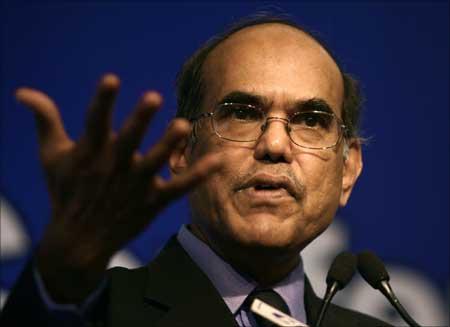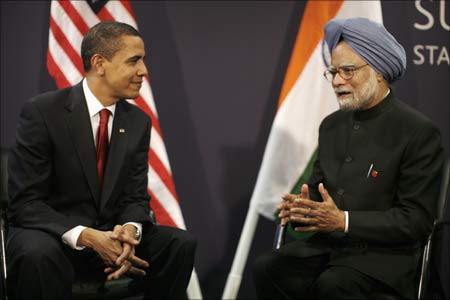
As nations across the world make reshaping the financial services industry a key priority in their efforts to put the global economy back on track, they are likely to take a leaf out of the regulatory models of countries like India, an Accenture report has said.
"The regulatory models of Canada, India and Spain may become more widely adopted. Canada's banks largely escaped exposure to toxic assets due to the higher liquidity reserves required by their charters. India and Spain, which also require high levels of liquidity reserves, have also emerged strong," the global consulting firm said in a report.
Text: PTI

The Brazilian, Chinese and Indian banks are better capitalised than most banks in the developed nations of the United States, the United Kingdom, Europe and Australia, it said.
Looking ahead, Accenture said trends like "rethinking regulation" are likely to emerge as countries resort to recapitalise some institutions, organise mergers of stronger and weaker companies and step up regulatory oversight.

Referring to an increased role being played by emerging nations in the world economy, the report said advanced economies, like the Group of 7, recognise that involvement of developing countries in discussing the restructuring of the regulatory framework is vital to a successful effort in tackling the global meltdown.
"We are witnessing a shift in the informal management of the international economy from the G-7 countries to the broader G-20 forum. While macroeconomic policy coordination will likely continue to be centered in the G-7 group, it is clear that responsibility for addressing systemic issues such as financial market regulation is transitioning to the G-20," the Accenture report said.

An uptick in mergers and acquisitions, particularly within domestic markets, is also expected in the coming months, Accenture said.
Stronger banks will look to expand market share (using government cash infusions in some cases), and weaker banks will be forced into mergers, acquisitions or receiverships.
Financial companies from emerging countries would be among the busiest in M&A activities, it added.